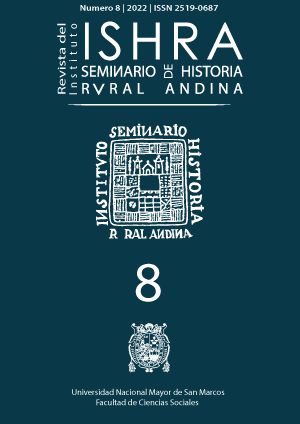Trajectory of the ideology of mestizaje in 20th century Peru
DOI:
https://doi.org/10.15381/ishra.n8.22024Keywords:
miscegenation ideology, intellectuals, race, Hispanism, PeruvianismAbstract
The relationship between historiography and “miscegenation ideology” has been little explored or insufficiently explained. The ideology of miscegenation became the basis of the discourse of the Peruvian nation between the 19th and 20th centuries. Creole intellectuals sought to homogenize the population, to make the indigenous/Afro-descendant population invisible, or to whitewash the nation. The objective of this article is to approach this phenomenon from the analysis of the work of four influential intellectuals and historians (Víctor Andrés Belaúnde, José de la Riva Agüero, Raúl Porras Barrenechea and José Antonio del Busto), who formed generations of historians and scholars of the country in the twentieth century. These authors will assume conservative Hispanic discourses, which they will seek to present as a “Peruvianist ideology”. Finally, these discourses are contrasted with the vision of miscegenation in authors such as José María Arguedas, who proposes miscegenation without acculturation.
Downloads
Downloads
Published
Issue
Section
License
Copyright (c) 2022 Eddy Walter Romero Meza

This work is licensed under a Creative Commons Attribution 4.0 International License.
AUTHORS RETAIN THEIR RIGHTS:
a. Authors retain their trade mark rights and patent, and also on any process or procedure described in the article.
b. Authors retain their right to share, copy, distribute, perform and publicly communicate their article (eg, to place their article in an institutional repository or publish it in a book), with an acknowledgment of its initial publication in the ISHRA, Revista del Instituto Seminario de Historia Rural Andina.
c. Authors retain theirs right to make a subsequent publication of their work, to use the article or any part thereof (eg a compilation of his papers, lecture notes, thesis, or a book), always indicating the source of publication (the originator of the work, journal, volume, number and date).






